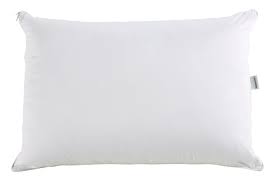pillow
英 [ˈpɪl.əʊ]
美 [ˈpɪl.oʊ]
- n. 枕头
- vt. 垫;枕于…;使…靠在
- vi. 枕着头;靠在枕上
- n. (Pillow)人名;(英)皮洛
使用频率:

记忆方法
1. 枕头要低一点。
中文词源
pillow 枕头
来自古英语pyle,枕头,来自West Germanic*pulwi,借自拉丁语pulvinus,垫子,枕头,词源不详。
英语词源
- pillow
-
pillow: [OE] Pillow in a recognizable form emerged in the 14th century. It was based on an inflected form of Old English pyle ‘pillow’. This came via a prehistoric West Germanic *pulwīn (source also of German pfühl and Dutch peluw ‘pillow’) from Latin pulvīnus ‘pillow’, a word of unknown origin.
- pillow (n.)
- Middle English pilwe, from Old English pyle "pillow," from West Germanic *pulwi(n) (cognates: Old Saxon puli, Middle Dutch polu, Dutch peluw, Old High German pfuliwi, German Pfühl), an early borrowing (2c. or 3c.) from Latin pulvinus "little cushion, small pillow," of uncertain origin. Modern spelling is from mid-15c. Pillow fight (n.) attested from 1837; slang pillow talk (n.) first recorded 1939.
- pillow (v.)
- 1620s, from pillow (n.). Related: Pillowed; pillowing.
权威例句
- 1. I have a pillow with my name embroidered on it.
- 我有一个绣着我名字的枕头。
- 2. Sam snuggled down in his pillow and fell asleep.
- 萨姆舒服地枕着枕头进入了梦乡。
- 3. Tendrils of hair strayed to the edge of her pillow.
- 她的几缕头发散落在枕边。
- 4. The pillow cover can match up with the sheets.
- 这条枕巾可以和床单配上。
- 5. He tried to muffle the alarm clock by putting it under his pillow.
- 他把闹钟塞在枕头底下,想减低声音。